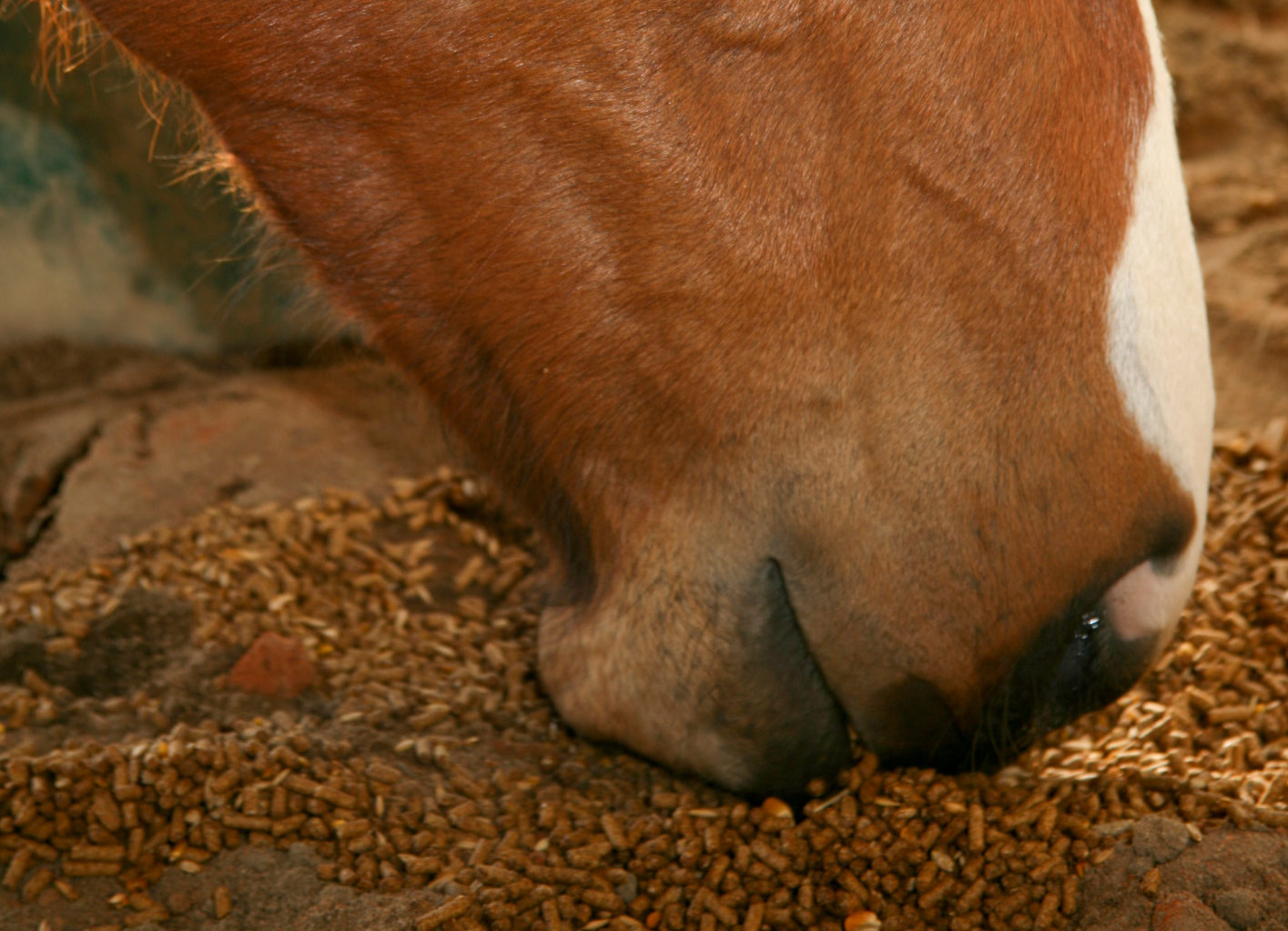
In general, an adult horse needs 8-10% protein in the diet. However, an equine athlete might need more protein depending on exercise demands. Protein is important for tissue repair and helps replace nitrogen that is lost in the sweat.
Amino acids are also important to working equids. Needs for one amino acid, lysine, can increase from 10-60% above maintenance requirements based on the horse’s work output.
Usually, a working horse needs more calories to offset the exercise effort, thus it takes in more protein by eating more food to compensate. Consumption of more calories generally means the horse also consumes necessary amounts of protein. If the food offered is higher in energy with not as much protein, then supplemental amino acids might be needed.
Feeding too much protein is counterproductive to efficient muscle function. In addition, the metabolism of protein consumes a lot of metabolic energy and is far less efficient in generating energy than what is achieved by feeding fat or starch products. High-protein diets (such as those containing legumes or soy) also require more water for urinary excretion of nitrogen, so that fact of diet must be factored in for a horse working in hot climates.
Amino acids are important for synthesis of tissue protein, enzymes, and also to provide some energy. Amino acids are primarily digested in the small intestines, but forage digestion in the large intestines releases protein.
Lysine is a critical amino acid. If forage (pasture or hay) is the mainstay of the diet, then more protein in the diet might be indicated to meet the lysine requirement.
You might hear about feeding branched-chain amino acids (BCAA), in particular leucine, isoleucine and valine, to equine athletes. This premise is based on the idea that the more BCAA ingested, the lower the tryptophan (another amino acid) uptake, which is a precursor for synthesis of serotonin. High levels of serotonin create fatigue and lethargy. (You’ve probably heard that the post-Thanksgiving slump that people feel after eating turkey is due to its high levels of serotonin, but all meat contains tryptophan, with turkey having just a bit more than chicken.)
Currently, there is no evidence that supplementation with BCAA helps with equine exercise performance.


